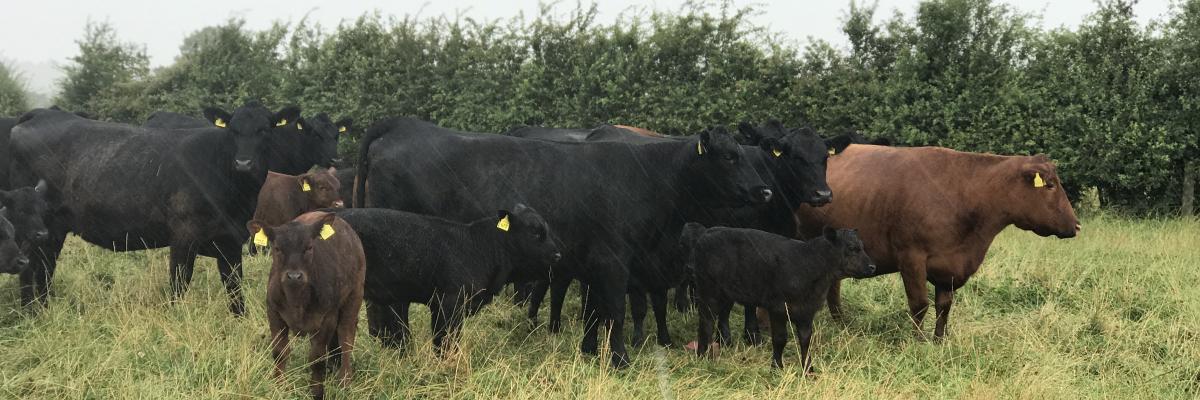

The animal welfare and environmental benefits of Pasture for Life farming - interim findings
Download the PDF
This interim report from Pasture-Fed Livestock Association (PFLA) farmers seeks to address the environmental and animal welfare benefits of the raising of ruminants wholly on pasture, as reflected in the Pasture for Life (PfL) certification mark and its underlying standards. Advocates of this approach find that ruminants thrive with better health and lower vet bills, and when land is sustainably managed with grazing livestock, there is improved carbon sequestration, water infiltration, soil fertility, nutrient cycling, soil formation, biodiversity, wildlife habitat, and ecosystem stability and resilience. The report follows a similar report on the human health benefits arising from animals raised to PfL standards. The PFLA is involved in three on-going farm-based projects; SEEGSLIP, CEFAW, and one monitoring soil health. Pending the results of these projects, this report seeks to summarise the current state of knowledge on the benefits to animal welfare and to the environment from applying PfL standards.
- Two thirds of UK farmland is pasture, much of which is not suitable for other forms of food production but ruminants thrive on it.
- The PfL standards include what an animal may and may not eat (essentially allowed pasture and forage but not grains and by-products), stocking rates, grazing management and the diversity of plants.
- Animal health benefits include improved fertility, lower incidence of lameness and mastitis, and decreased risk of nutrition-based complaints e.g. ruminal acidosis.
- Farmer Survey results indicate reductions in intestinal worm infections and liverfluke, less anthelmintic use and lower vet bills. The animals appeared more content and lamb mortality was lower.
- The actual environmental benefits vary significantly between farms depending on the nature of the pasture and how it is managed.
- Many farmers are finding that soil can be regenerated with improved carbon sequestration, water infiltration, soil fertility and nutrient cycling. They see an increase in biodiversity plus better farm profitability.
- PfL standards leads to lower fertiliser and pesticide use.
- The prohibition of maize and soya products remove the environmental impacts that these cause.
- Research has shown that consumers purchase pasture-fed meat for benefits relating to health and nutrition, the environment, animal welfare, and meat quality and flavour.
